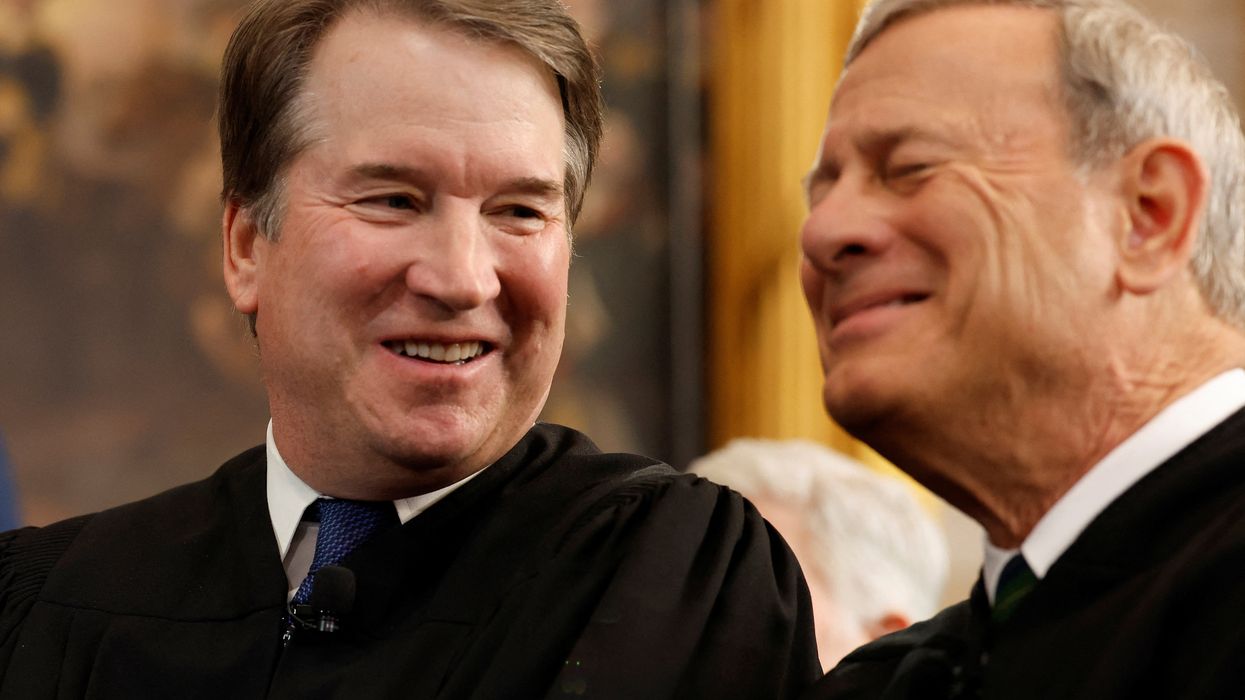Justice Elena Kagan accused Monday the Supreme Court’s conservative majority of usurping Congress’s power and dismantling the separation of powers — warning that in Trump v. Slaughter, the Court is reshaping government in the president’s favor while bypassing legal precedent and public scrutiny.
In the case, the Supreme Court is weighing whether a president can fire commissioners of independent agencies, specifically the Federal Trade Commission (FTC), without cause, despite a law that says such officials may only be removed for “inefficiency, neglect of duty, or malfeasance.”
On Monday, the Court declined to block Trump’s firing of Rebecca Slaughter from the FTC, despite a previous ruling reinstating her because that removal was illegal under law. The order was issued by an apparent 6‑3 vote.
In a Slate article published Monday, legal writer Mark Joseph Stern argued that the Supreme Court has made a decisive move to undermine longstanding protections on the executive branch — empowering President Donald Trump to unilaterally remove heads of independent federal agencies, and thereby consolidating power in the presidency.
"The Supreme Court knocked down one of the final barriers to Donald Trump’s unprecedented consolidation of power on Monday: By an apparent 6–3 vote, the conservative supermajority effectively greenlit Trump’s illegal firing of a Federal Trade Commissioner and teed up the reversal of a 90-year-old precedent that prevents the president from exercising dictatorial control over government," Stern wrote.
The article noted that Congress had explicitly made FTC commissioners removable only for “good cause,” a safeguard designed to prevent presidents from simply purging agency leadership for partisan reasons. Stern stated that Trump’s removal of Slaughter (and of the other Democratic commissioner, Alvaro M. Bedoya) was clearly political: replacing them with loyalists, thereby stripping the FTC of any meaningful independence.
He argued that this shift is part of a broader strategy by the justices that make up the Court's conservative supermajority to dismantle the doctrine established in Humphrey’s Executor (1935), a precedent that carved out legal protection for heads of independent regulatory bodies. Under Humphrey’s Executor, Congress could impose limits on presidential removal powers so as to ensure independence in these agencies, even while preserving executive oversight.
But Stern wrote the Court is now preparing to formally overturn Humphrey’s, doing so by first legalizing Trump’s removal of Slaughter through a so‑called “shadow docket” order. The Court was silent in its Monday decision in Slaughter but simultaneously accelerated review of whether Humphrey’s Executor should be overruled. Stern maintained that what used to be settled law is being dismantled.
He warned that the consequences are grave.
Without protections against removal, independent regulatory agencies become tools of the administration, rather than neutral enforcers of law. Trump’s ability to remove agency heads without “good cause” would allow him to purge dissenters, punish critics, and reward loyalists — all without meaningful legal check or oversight.
Moreover, if courts lose the power to reinstate agency officials or enforce these protections, the separation of powers between Congress, the president, and the courts may be fundamentally reshaped.
The piece noted that in dissent, Justice Kagan, joined by other liberal justices, argued that the Court is doing exactly that: reshaping "'the nation’s separation of powers' in Trump’s favor."
"And they’re doing so without respecting the process that differentiates legal judgments from bare flexes of partisan muscle," the analyst said.
Stern framed this as part of a larger trend: the Court is enabling what he sees as an autocratic presidency.
"It is increasingly difficult to avoid the conclusion that the Supreme Court is dismantling every guardrail that separates democracy from dictatorship," he wrote.


